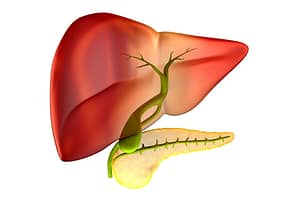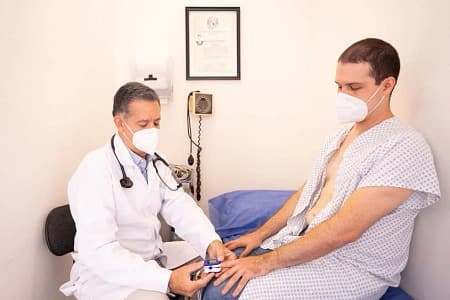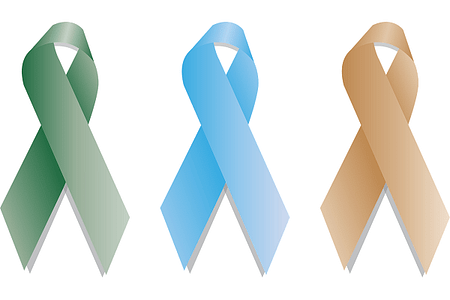
Treating Prostate Cancer
There is no ‘one size fits all’ treatment for prostate cancer. Your physician will evaluate your condition and make a decision about what is best for you. The decision-making process for treatment may include a combination of clinical and psychological factors such as the following. You should discuss all of them with your doctors before drafting a plan of treatment.
- A need for therapy
- Your circumstances and preferences
- Level of risk involved
- Stage of the cancer
- How fast your cancer is growing
- Your overall health
- Potential benefits and side effects of the treatment
Who will Treat You?
Most men who are diagnosed prostate cancer at an initial stage are generally treated in consultation with a radiation oncologist, and a urologist. In case of an aggressive condition, or when the cancer has spread to bones or other areas (metastatic disease), you will likely also have consultations with a medical oncologist. Medical oncologists are specialized in treating cancer complications. They will first diagnose the condition, its stage and how far it has spread and then recommend a treatment plan. Read here to know about the diagnosis and testing of prostate cancer.
Sometimes, a multi-disciplinary care is needed to give you the most comprehensive available treatment and better outcomes. Many hospitals have multidisciplinary prostate cancer departments that can provide such services.
Treatment Options
A low-risk prostate cancer may not require an immediate treatment. Some men may never need a treatment at all. Doctors rather recommend an active surveillance or watchful waiting of their cancer.
In an active surveillance, regular follow-up blood tests, rectal exams and biopsies (if needed) are conducted to monitor growth of the cancer. If any of the tests show positive signs of growth of your cancer, a treatment such as surgery or radiation or other therapy may be given.
There is however a risk with active surveillance. The cancer may advance and spread between two follow-ups causing more complications.
If the treatment is necessary, the objective of the treatment is to cure or control the cancer so that life expectancy is not affected or shortened and also to maintain a good quality of life. If the cancer has already spread to nearby areas or bones, the aim is not to cure it, but to increase life and delay the symptoms. Read here to know aboutprostate cancer signs and symptoms.
Following options are available to treat prostate cancer.
Surgery for removing the prostate
Surgery is done to remove the prostate gland. The procedure is called radical prostatectomy. It may also involve removal of some surrounding tissues and lymph nodes to avoid spread in case the cancerous cells might have grown in the nearby areas.
This procedure provides an option for curing localized prostate cancers and those that have grown locally.
Radical prostatectomy can be performed in two ways:
Robot-assisted surgery: Instruments are attached to a robot and inserted into your abdomen through small incisions. Your surgeon controls the machine through a console and guides the robot to move the instruments. Robotic prostatectomy allows the surgeon to make precise and accurate movements of the surgical tools which is not possible with minimally invasive surgery or manual surgeries.
Through abdominal incisions: An incision is made in your abdomen and the prostate gland is taken out through the incision. This approach is known as retropubic approach.
The surgery carries some risks and side effects, like any other operation. The risks may include such as:
- urinary incontinence – This can be a minor problem such as leaking small drips of urine, or can even lead to a major problem causing leaking larger amounts. For most men, the leakage usually stops within three to five months of the surgery. Only about 2 in every 10 men have long-term problems.
- erectile dysfunction – this generally improves after some time. But about 50% of the men may have long-term problems
- deaths – a person die in this surgery only in extremely rare cases. One in 1,000 men under 65 years old and one in 200 men over the age of 65 years die in a radical prostatectomy surgery, according to estimates.
You should discuss with your doctor about the possible risks and side effects based on your circumstances, type of procedure you choose, your age, and based on your overall health.
Radiation Therapy / Radiotherapy
Radiation therapy uses high-powered energy beams to destroy cancerous cells. This option for treatment is used to cure localized prostate cancer and that has advanced locally. It can also help in slowing the progression of metastatic prostate cancer and relieve the symptoms. It can be delivered in two ways:
- External radiation therapy – a machine outside the body directs radiations to the cancerous cells
- Internal radiation therapy (also known as brachytherapy) – radioactive pellets are surgically placed into or close to the cancer cells to destroy them
There are some side effects of radiation therapy. These may include pain in urination, frequent or urgent urination, loose stools or abdominal pain or pain when passing stools. Another side effect could be erectile dysfunction.
Hormone Therapy
Hormone therapy is used to stop or reduce your body from producing the male hormone – testosterone. The production of testosterone helps the prostate cancer cells grow. Decreasing the supply of testosterone causes the cancer cells to die or to grow more slowly.
Hormone therapy is generally used along with other therapies such as radiotherapy. You may receive hormone therapy before undergoing radiotherapy. In some cases, it may be given after radiotherapy to reduce the chances of returning of the cancerous cells after radiation-based treatment.
Hormone therapy can be given in many forms such as:
- Injections
- Tablets
- A combination of luteinising hormone releasing hormone and anti-androgen treatment
- Surgery – this involves removal of the testicles to reduce levels of testosterone. This procedure is called orchiectomy.
There are some side effects of hormone therapies such as the following:
- Loss of sex drive
- Erectile dysfunction
- Sweating
- Weight gain
- Swelling on breasts
- Hot flashes
- Loss of bone mass
Chemotherapy
Chemotherapy is used to kill rapidly growing cells such as cancer cells through drugs. It can be administered through a vein in your arm, in the form of a pill or a combination of both.
Chemotherapy is generally used to treat prostate cancer that has spread to other parts of the body (metastatic prostate cancer) and which does not respond to hormone therapy.
Chemotherapy destroys cancer cells by interfering with the mechanism through which they multiply. It does not cure prostate cancer, but keep it under control and relieve the symptoms. This improves the quality of life.
The side effects of chemotherapy are caused because of its effects on healthy cells (such as immune cells). Main side effects are:
- Infections
- Tiredness or fatigue
- hair loss
- sore mouth
- loss of appetite
- nausea and vomiting
- damage to healthy cells
Biological therapy
Biological therapy, also called immunotherapy, enables your body to fight the cancer cells through your immune system.
A biological therapy called sipuleucel-T (Provenge) has been developed to treat advanced and returning prostate cancer. Some of your own immune cells are taken and genetically engineered in a laboratory to fight prostate cancer. They are then injected back into your body through a vein. In some cases, men respond to this therapy, but the treatment is currently very expensive.






